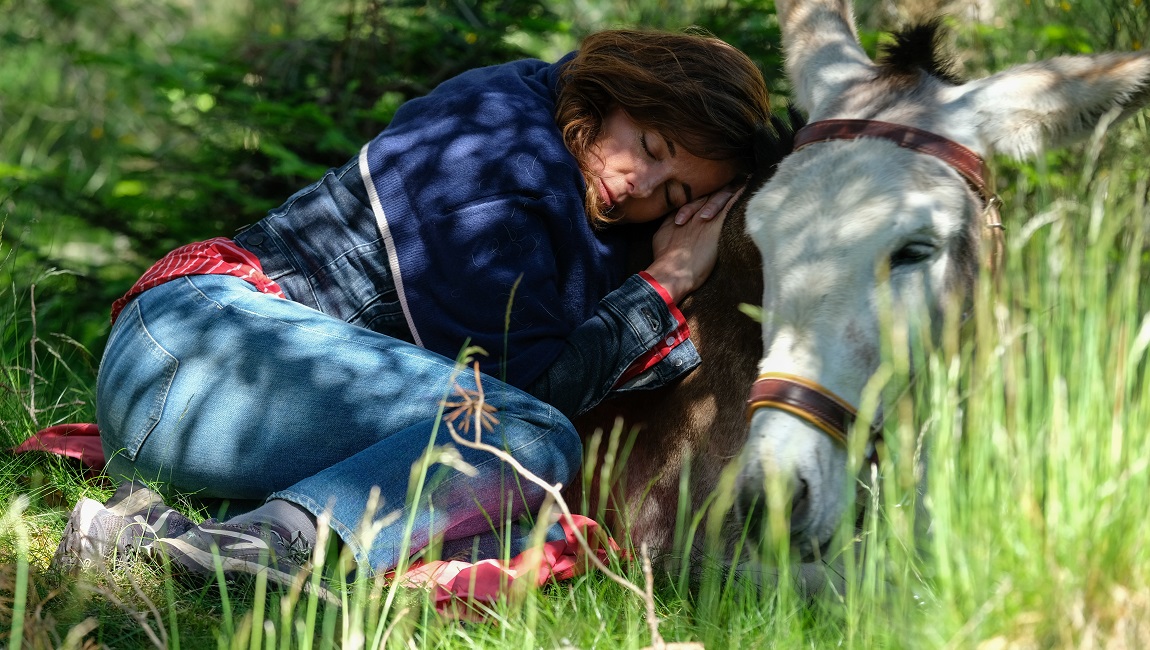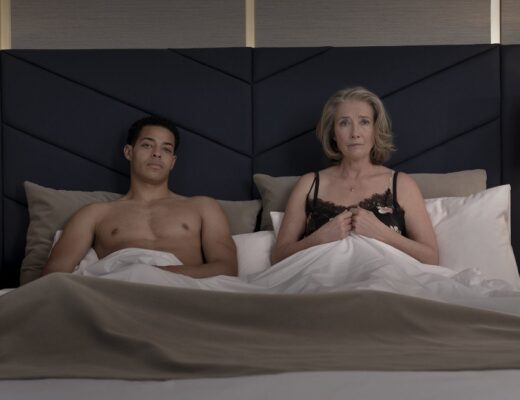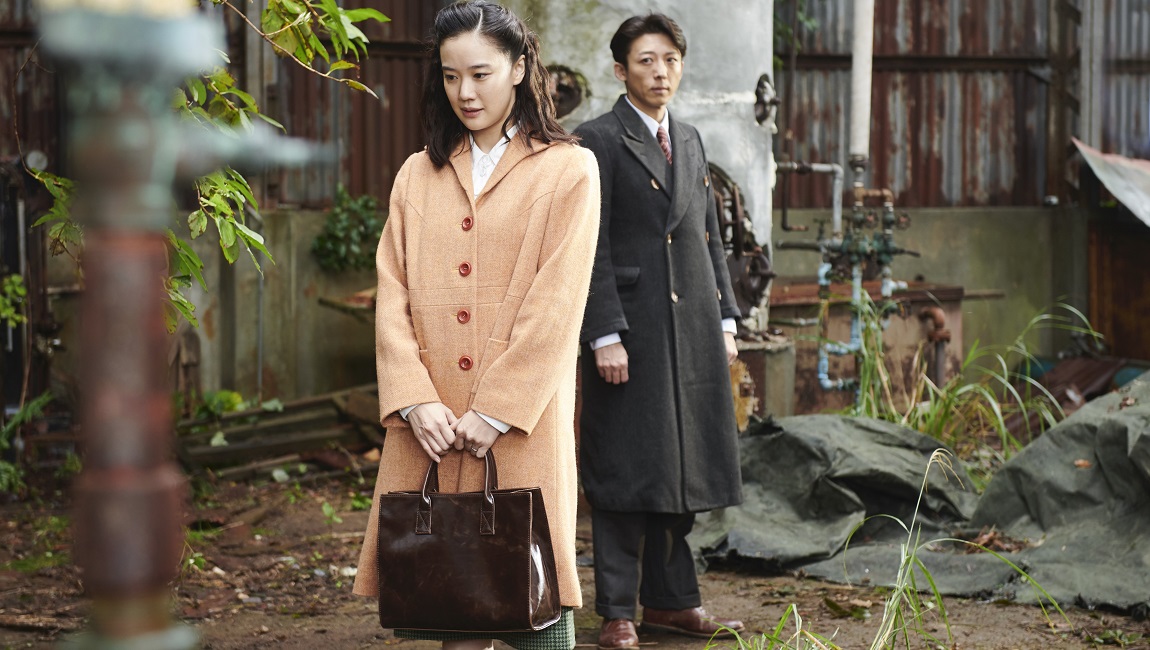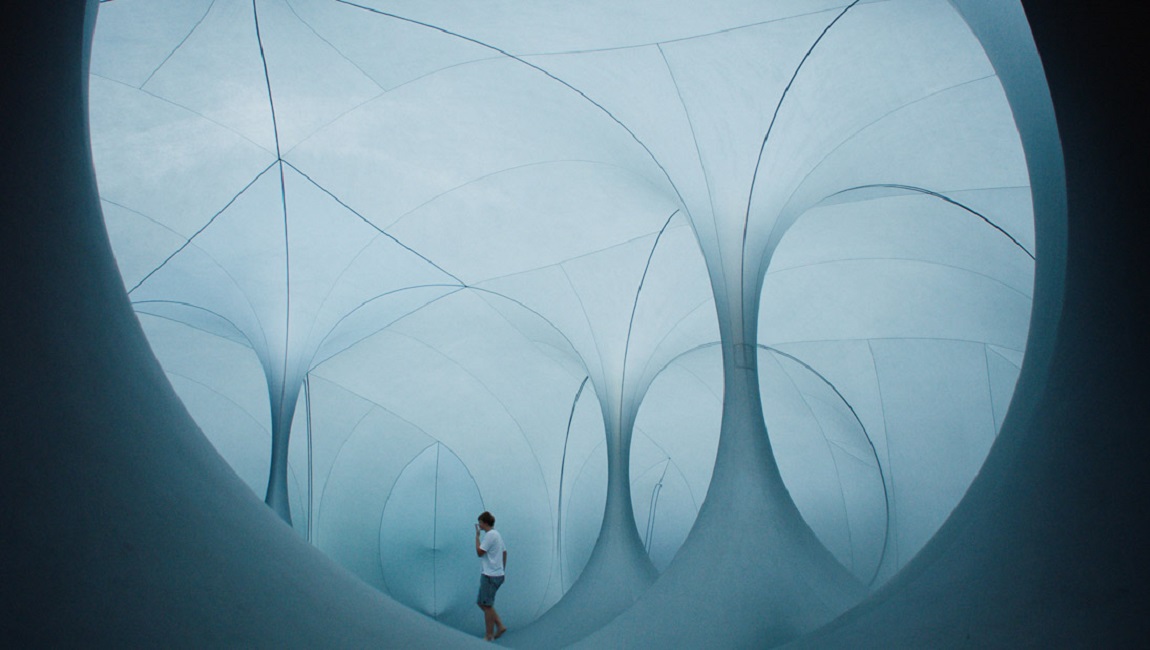My Donkey, My Lover & I might trade too liberally in cliché, but its escapist texture, palpable charm, and refusal to give in to sexist caricature makes for a mostly winning rom-com.
Those looking to indulge in the touristy flights of fancy offered by picturesque landscapes and the pursuit of young-at-heart love may look no further than the genre of French romantic comedy, one whose sensibilities have exuded less the cheap theatrics commonplace among its American cousins, and more the charm still revered in the works of filmmakers such as InRO favorite Emmanuel Mouret. Lest one, however, perceive the French rom-com as a hallmark of emotional authenticity, or — worse still — all such outings as travails of manufactured pleasure (the kind despised by casual moviegoers as being too neurotic, too intellectual), we must first make clear that the French themselves are culturally a diverse bunch; their sense of humor can, yes, stoop to the depths of Hallmark emporte-pièces, but they have also been known for their Allenesque conversations, Rohmerian (but of course!) summers, and the many absurd tidbits courtesy of Quentin Dupieux.
In this vein, a film like Caroline Vignal’s My Donkey, My Lover & I forms something of an oddity, a tale of lonely hearts and searching souls stripped of the many artistic conventions formerly integral to “high-brow cinéma.” Its premise and thesis are discernible almost immediately in the first five minutes: at an elementary school, middle-aged Antoinette (an excellent Laura Calamy) leads a group of grade-schoolers in a performance, belting out the lyrics to a rather (inappropriately) seductive song, before joining her lover, Vladimir (Benjamin Lavernhe), in a classroom where their relationship dynamics are made clear. Vladimir’s daughter, Alice (Louise Vidal), is Antoinette’s student, and their original plans to elope during the school holidays have been disrupted by his wife Éléonore (Olivia Côte) by way of a hiking trip in the Cévennes National Park — site of the Scottish novelist Robert Louis Stevenson’s famed journey with a donkey some two centuries prior.
Antoinette, being of somewhat immature and lovesick disposition (we’ve all been there), decides to hijack Vladimir’s itinerary and reclaim her lover for herself — or so she determines, in the precious heat of the moment. What will she really do when confronted, not just by Éléonore, but also by the precarious family of three enjoying their vacation? Her tour, physically and spiritually, begins on quite literally the wrong foot as she stumbles, late, into her group of hikers. Being the only one with a donkey in tow (“we don’t have to copy everything Stevenson did”), and bleating inchoately about her motivations for undertaking this tour to a group of strangers, she becomes further lost when, paired with the asinine Patrick, she can’t quite get the latter to move and make haste in her quest to find both Vladimir and herself. Single men approach her, but for the most part she’s dead-set on recovering the sunk costs of her six-day vacation — 870 euros, plus loads of heartache and turmoil.
Vignal’s film, though formally sparse and perhaps even unoriginally accepting of its protagonist’s girlish naïveté, proves ultimately endearing in its complicity with Antoinette’s uninhibited lust for life. Titled Antoinette in the Cévennes in the original French, My Donkey, My Lover & I humanizes without necessarily glorifying the anxieties and follies of middle age, and exploits the countryside’s rustic beauty while at it. Patrick, a figure of stout cinematic import ever since Bresson’s Balthazar, acquires a more modest look in comparison; his silent companionship nonetheless imparts a quiet wisdom when juxtaposed against the worldly concerns of his accomplice. Rare for a film in this day and age to dispense with the stakes so candidly, My Donkey, My Lover & I merely raises them momentarily, in the danger of an affair exposed or of a confrontation gone wrong, before relegating them to the sidelines: in life, some will judge you no matter what, but it’s the countryside and it’s the summer; what’s the big deal?
There’s a certain mode of escapism to be found in such a narrative, and Calamy’s performance definitely supports this idea; one does wonder how nothing truly worrying has befallen her messy and romantically unfulfilled life. A scene late at night finds Antoinette and Patrick alone in the woods, stranded in darkness and scared to death; she trips at a clearing and the image cuts to the next morning where, nuzzled against her donkey, Antoinette gently wakens, surrounded by a fox, an owl, a deer, and a hare. Nothing short of magical, this fantastical sequence actually embodies one of the film’s key strengths: its positive portrayal of the emotional lives of women beyond sexist caricature. Beyond the politics of representation, however, My Donkey, My Lover & I celebrates the prospect of lived authenticity — to find oneself, so the cliché goes, one must first lose oneself. “When one risks so little and experiences so little on the voyage,” American historian Daniel Boorstin wrote, “the experience of being there somehow becomes emptier and more trivial.” Vignal seems to think otherwise, her restaging of Stevenson’s 1879 travel account into an explicit comedy of impulse testifying to the eternal allure of discovery for traveler, tourist, or otherwise. So what if she sticks out like a sore thumb on a stubborn mule? In the Scotsman’s words, “we’re all travelers in the wilderness of this world — all, too, travelers with a donkey: and the best that we find in our travels is an honest friend.”







